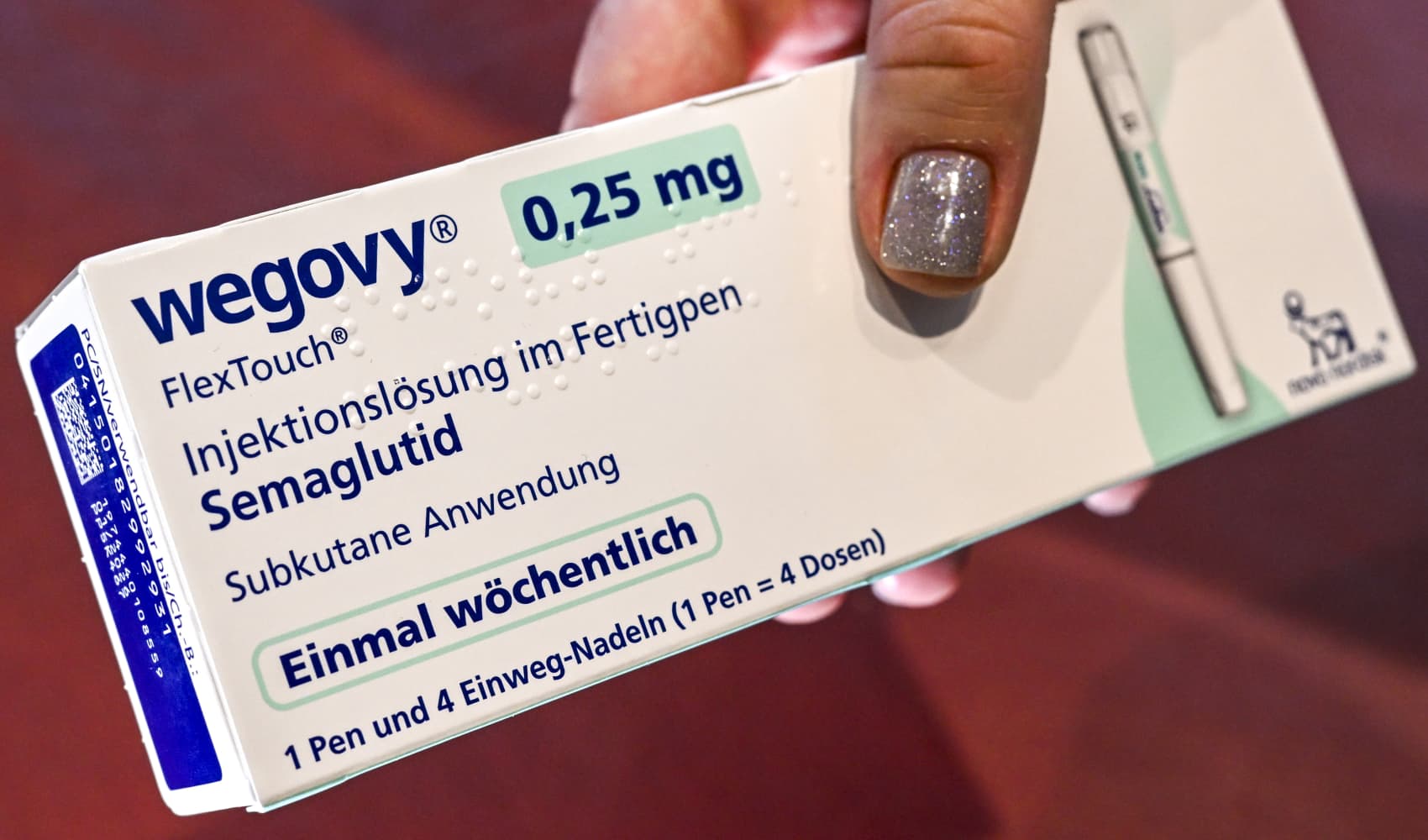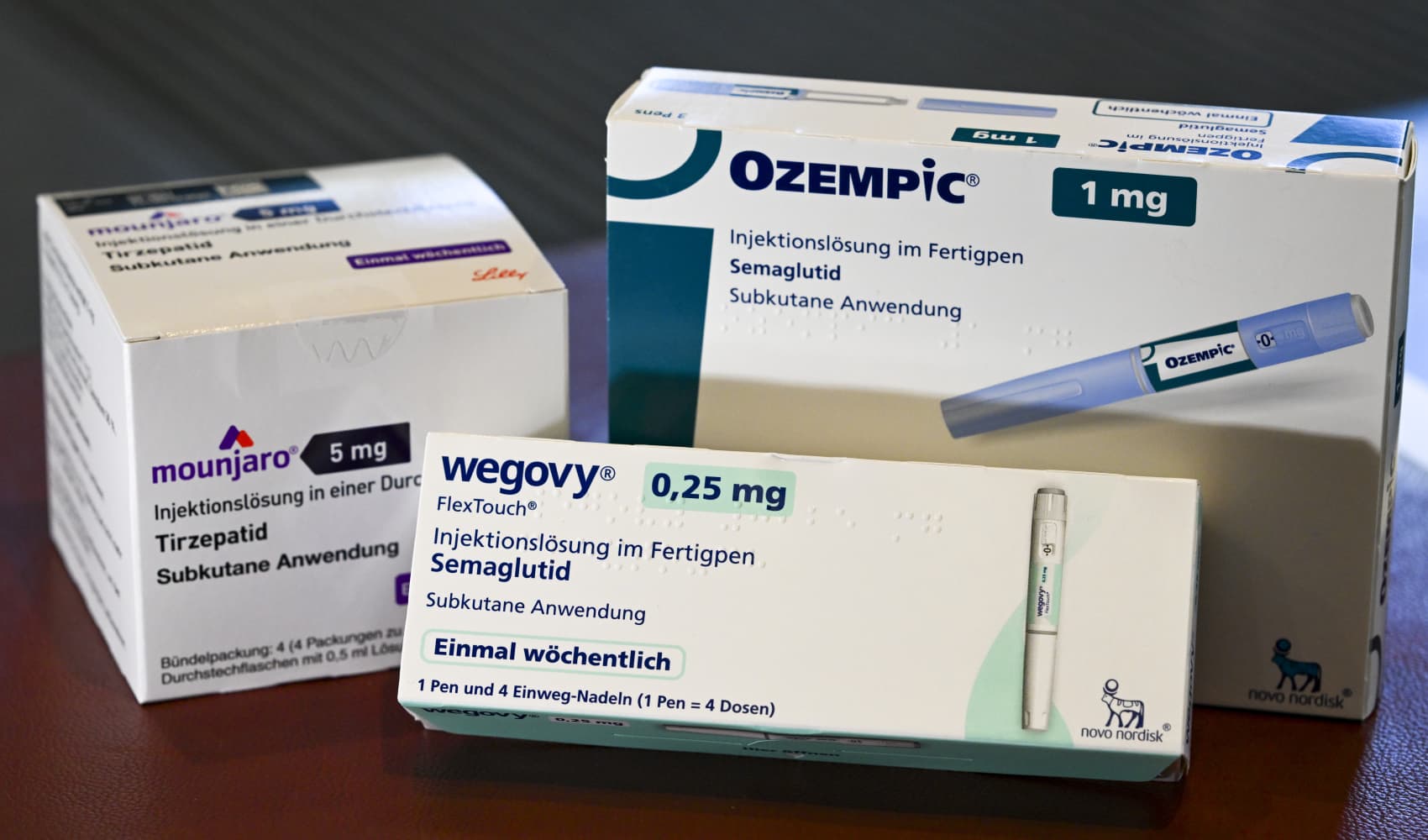Wegovy & Ozempic Victory: Copycats Banned - What's Next?
Novo Nordisk Wins Big: Wegovy & Ozempic Copycats Crushed!
Introduction: A David vs. Goliath Moment in Pharma?
The pharmaceutical world just witnessed a potential game-changer. You know those cheaper, "copycat" versions of Novo Nordisk's blockbuster drugs, Wegovy and Ozempic, that some compounding pharmacies were whipping up? Well, they've hit a major roadblock. A recent legal victory for Novo Nordisk has significantly restricted the ability of these pharmacies to market or sell these unapproved alternatives.
Think of it like this: imagine your favorite coffee shop suddenly starts facing competition from "generic" lattes sold at half the price. You might be tempted, right? But what if those generic lattes weren't quite the same? This legal battle is all about ensuring that patients get the real deal when it comes to their medications, especially for conditions as serious as diabetes and obesity.
The Court Ruling: A Blow to Compounding Pharmacies
Here's the nitty-gritty. U.S. District Judge Mark Pittman essentially sided with the FDA, denying the Outsourcing Facilities Association’s request for a preliminary injunction. This injunction would have stopped the FDA from cracking down on its members who were creating copies of semaglutide – that's the active ingredient in both Ozempic and Wegovy.
What does this actually mean?
Simply put, it makes it much harder for compounding pharmacies to legally produce and sell versions of Wegovy and Ozempic that haven't been approved by the FDA. It's like the difference between a branded medication and a generic one - except in this case, the "generic" versions haven't undergone the same rigorous testing and approval process.
Why Were These "Copycats" So Popular?
The demand for Ozempic and Wegovy has been through the roof! We're talking stratospheric levels. And with that high demand came shortages. So, naturally, some patients turned to compounding pharmacies for these alternatives.
The cost factor
Let's face it: Wegovy and Ozempic are expensive. Many patients found themselves either without insurance coverage or unable to afford the high prices. The "copycat" versions offered a more budget-friendly option. Think of it as choosing between a designer handbag and a similar-looking one from a less known brand.
Novo Nordisk's Perspective: Protecting Patients and Innovation
From Novo Nordisk’s point of view, this legal win is about more than just protecting their profits. They argue that it's about safeguarding patient safety and preserving the integrity of the drug development process. After all, they invested billions in research and clinical trials to bring these medications to market.
The importance of FDA approval
FDA approval ensures that a drug is safe, effective, and manufactured to certain standards. Unapproved versions of medications may not meet these standards, potentially putting patients at risk. It's like building a house – you want to make sure the foundation is solid before you start adding the walls and roof.
The Outsourcing Facilities Association's Argument: Access to Affordable Medications
On the other side, the Outsourcing Facilities Association argued that their members were providing a crucial service by offering more affordable alternatives to patients who couldn't access or afford the branded medications. They believe that compounding pharmacies play a vital role in filling medication shortages and meeting individual patient needs.
A balancing act
It’s a tricky situation, isn’t it? On one hand, we want to ensure that patients have access to the medications they need at a reasonable cost. On the other hand, we need to protect patient safety and the integrity of the drug approval process.
The Potential Impact on Patients: What Does This Mean For You?
If you've been relying on compounded versions of Wegovy or Ozempic, this ruling could impact your access to these medications. It's essential to talk to your doctor about your options and ensure that you're using medications that are safe and effective.
Navigating the new landscape
Consider this a moment to reassess your treatment plan. Are there alternative medications that might work for you? Can you explore options for insurance coverage or patient assistance programs to help with the cost of Wegovy or Ozempic? It's all about finding the best solution for your individual needs.
The Future of Compounding Pharmacies and Semaglutide
This legal battle isn't necessarily the end of the road for compounding pharmacies. They may still be able to compound semaglutide under certain circumstances, such as when there's a documented shortage of the branded medication. However, the ruling definitely tightens the reins and makes it more difficult for them to operate freely.
A changing regulatory environment
Expect to see increased scrutiny of compounding pharmacies and their practices. The FDA is likely to step up its enforcement efforts to ensure that these facilities are adhering to regulations and not putting patients at risk.
Understanding Semaglutide: The Active Ingredient in Wegovy and Ozempic
Semaglutide is a glucagon-like peptide-1 (GLP-1) receptor agonist. That's a mouthful, right? In simpler terms, it helps regulate blood sugar and promotes weight loss by slowing down digestion and increasing feelings of fullness.
How it works in the body
Imagine semaglutide as a key that unlocks certain receptors in your body. When these receptors are activated, they trigger a cascade of effects that ultimately lead to improved blood sugar control and reduced appetite. It's like hitting the "reset" button on your metabolism.
Wegovy vs. Ozempic: What's the Difference?
Both Wegovy and Ozempic contain semaglutide, but they're approved for different purposes and come in different dosages. Ozempic is primarily used to treat type 2 diabetes, while Wegovy is specifically approved for chronic weight management.
Choosing the right medication
The best medication for you will depend on your individual health needs and goals. Talk to your doctor to determine whether Wegovy or Ozempic is the right choice for you.
The Role of the FDA: Ensuring Drug Safety and Efficacy
The FDA plays a crucial role in protecting public health by ensuring that medications are safe and effective before they're allowed to be sold in the United States. This involves rigorous testing, clinical trials, and ongoing monitoring of drugs after they've been approved.
A rigorous approval process
Getting a drug approved by the FDA is a long and expensive process. It can take years of research and development, followed by extensive clinical trials to demonstrate that the drug is both safe and effective. It's like climbing Mount Everest - a challenging but ultimately rewarding journey.
The Broader Implications for the Pharmaceutical Industry
This legal victory for Novo Nordisk could have broader implications for the pharmaceutical industry as a whole. It sends a clear message that drug companies will vigorously defend their intellectual property rights and protect their investments in research and development.
Protecting innovation
The pharmaceutical industry relies on patents and other forms of intellectual property protection to incentivize innovation. Without these protections, drug companies may be less willing to invest in developing new and life-saving medications. It’s like protecting your recipe so that you can continue making delicious meals.
Beyond Medications: Lifestyle Changes for Weight Management and Diabetes Control
While medications like Wegovy and Ozempic can be helpful tools, they're not a magic bullet. Lifestyle changes, such as diet and exercise, are essential for long-term weight management and diabetes control.
A holistic approach
Think of medications as one piece of the puzzle. A healthy diet, regular exercise, stress management, and adequate sleep are all equally important for achieving optimal health. It's about creating a sustainable and balanced lifestyle.
The Importance of Consulting with a Healthcare Professional
It's crucial to consult with a healthcare professional before starting any new medication, including Wegovy, Ozempic, or compounded versions of semaglutide. Your doctor can assess your individual health needs, discuss potential risks and benefits, and help you make informed decisions about your treatment plan.
Personalized care
Every patient is unique, and what works for one person may not work for another. A healthcare professional can provide personalized care and guidance based on your specific circumstances. It's like having a personal trainer who creates a workout plan tailored to your fitness level and goals.
Conclusion: Key Takeaways from the Novo Nordisk Legal Win
Novo Nordisk's legal victory marks a significant shift in the landscape of compounded semaglutide medications. It underscores the importance of FDA approval, patient safety, and the protection of intellectual property rights. While access to affordable medications remains a critical issue, this ruling emphasizes the need for patients to prioritize safety and work closely with their healthcare providers to find the best treatment options.
Frequently Asked Questions (FAQs)
1. What does this ruling mean for patients currently using compounded semaglutide?
If you are currently using a compounded version of semaglutide, it's crucial to consult with your doctor. They can help you assess the safety and efficacy of the compounded medication and explore alternative options, including FDA-approved medications like Wegovy and Ozempic.
2. Will this ruling make Wegovy and Ozempic more expensive?
It's possible that this ruling could lead to increased demand for Wegovy and Ozempic, which could potentially affect their prices. However, it's difficult to predict the exact impact on pricing. Exploring patient assistance programs and insurance coverage options is still recommended.
3. Are all compounding pharmacies affected by this ruling?
Yes, this ruling impacts compounding pharmacies that were producing and selling unapproved versions of semaglutide. However, compounding pharmacies may still be able to compound semaglutide under specific circumstances, such as when there's a documented shortage of the branded medication.
4. What are the risks of using unapproved compounded medications?
Unapproved compounded medications may not meet the same quality and safety standards as FDA-approved drugs. This can increase the risk of adverse effects, inconsistent potency, and contamination. It's crucial to ensure that any medication you're taking has been properly tested and approved.
5. What are my options if I can't afford Wegovy or Ozempic?
If you're struggling to afford Wegovy or Ozempic, talk to your doctor about potential alternatives, such as other weight loss medications or diabetes treatments. You can also explore patient assistance programs offered by Novo Nordisk or other organizations, and investigate your insurance coverage options to see if you qualify for financial assistance.





